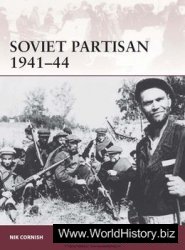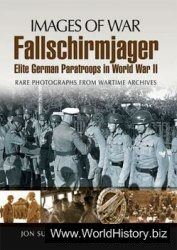Historians have moved on from the debate about who started the Cold War. Yet it is inadequate to talk of the Cold War simply as just one phase of foreign policy, or as a period of history fTom roughly 1945 to 1989. Since the end of the Cold War, more archival access and fTesh, often interdisciplinary thinking that is taking place in a new political environment have transformed the ways in which we understand the Cold War. The Cold War emerged in different ways in each country and its characterisation is still essentially shaped by national political environments. For this reason, the rise of interest in the importance of Commonwealth and colonies, decolonisation, and the 'Third World' in the Cold War is especially relevant for the UK, whose own imperial footprint lay across the world, and whose Cold War arena was genuinely global.
The intelligence strand of the Cold War was also more important than was previously realised. Intelligence information was vital for both domestic and foreign policy, and it also became a very expensive subset of a Cold War game in itself.174 Information was at a premium. Much work remains to be done on how intelligence was fed into specific Cold War decisions: some intelligence assessments were wrong; other assessments did not exist when they should have. Intelligence sources failed to anticipate the explosion of the first Soviet bomb in 1949; the Malaya crisis was not well served by intelligence information; neither the Berlin crisis of 1948-49 nor the invasion of South Korea were accurately anticipated; and British and American estimates on the size of the North Korean army were wildly inaccurate.175 Yet the steady drip-feed of intelligence material formed an important environment in which spending, planning, and operational decisions were made in the UK. Peter Hennessy calls this the creation of a 'Secret State’ within existing structures in Whitehall. Democratic control, such as there was, came only from ministerial decisions, not parliament.176
Another interpretation of Britain’s Cold War is more sociological, investing it with a domestic and social dimension that historians can unearth by reconstructing its 'lived experience’. In this interpretation, understanding the institutions of civil society, including trades unions, churches, and private networks, and their penetration by domestic and US intelligence becomes part of the fabric of a new history. This allows for a different kind of historical narrative that spills into hitherto-unexplored aspects of the Cold War, but which is also linked to the study of the rise of new forms of mass communications, and of national and transnational networks.177
The prosecution of the Cold War was very effectively carried out in Britain. There are many reasons as to why a Cold War mentality became so successfully internalised: the validity of the cause perhaps; but also a deeply rooted reflex of activism and international leadership that still dominated Whitehall and Westminster during these years, despite the privations that this might mean for the general public.178 These reasons were reinforced by the positive experiences of victory gleaned from the Second World War, for the wartime mentality that had delivered victory in 1945 did not then disappear completely. As they changed enemies, decision-makers saw that the intelligence and manipulative propaganda in domestic as well as overseas strategies were necessary to counter Communism, in the same way that they had been deployed against Nazism.
Party-political dissent was kept to a minimum, as there was also fairly robust political bipartisanship that dominated foreign policy making and minimised public disagreement if the national interest was said to be at stake. British elite groups were socially and ideologically coherent, not diverse, while intelligence monitoring and white propaganda encouraged the public notion of Britain as a responsible and moral great power. It remains the case that, as Britain settled down for the long haul of the Cold War, there was virtually no sustained questioning or opposition from the British masses or elites about British relations with the Soviet Union and Communism.
It is therefore impossible to disagree with the remark of the former permanent under secretary of state at the Foreign Office, Sir Michael Palliser, that 'the cold war is a thread that has run through everything’.179 The sense that there was an emerging Soviet and Communist threat obliged successive British governments to keep their people on an expensive semi-war footing at home and abroad.180 At home, vigilance and controls were nevertheless combined with welfare reforms and a greater state role in the management of the economy. Abroad, Britain had again to play a major part to create a favourable balance of power. As the Soviet Union was both a European and a global power, the support of the United States was also essential.181 Going nuclear strengthened Britain’s world power position and image, and it also helped the UK to deal with the United States as more of an equal partner, at least in the short term. By 1949, NATO was also in place to provide the security that would allow Communism to be contained at least behind the Iron Curtain. Soviet encroachment in the eastern Mediterranean and Iran, as well as in Asia, had to be stalled. A defence barrier across strategic parts of the Empire-Commonwealth was essential and, with American support, and despite early postwar decolonisation, this allowed 'the British Empire to revive before it collapsed’.182 These were policy objectives that were perceived to be both necessary and of strategic benefit to Britain. They quickly became Cold War policy imperatives that were continually to trump the debilitating economic weakness of Britain itself.




 World History
World History









